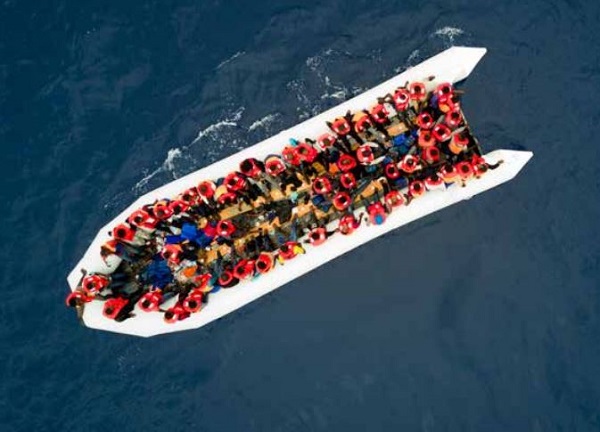The study “Places of Safety in the Mediterranean: The EU’s Policy of Outsourcing Responsibility” assesses the legal implications of disembarkation of migrants and refugees in North African countries by EU state and Frontex vessels.
The study, commissioned by the EU office of the Heinrich-Böll-Stiftung, includes an evaluation of Algeria, Egypt, Libya, Morocco and Tunisia as “Places of Safety” for rescued persons. Taking stock of the recent trend of outsourcing responsibility for refugees and migrants to non-EU actors, the study concludes that the EU and its Member States cannot escape international responsibility by seeking to avoid direct contact with migrants when they actively contribute to violations of the international law of the sea, international refugee law, and essential human rights guarantees.
The study stresses the obligation under international law to provide assistance to persons in distress at sea and to deliver them to a “place of safety”, that is a place where the survivors’ life is not under threat, where their basic needs are covered, and where they are safe from persecution and chain refoulement. It finds that Libya can under no circumstances be considered a place of safety given the volatile security situation, human rights abuses and return to detention of people intercepted at sea. Detention, torture and persistent reports of refoulement of refugees also raise concerns regarding returns to Algeria, Egypt, Morocco, and Tunisia. Particularly for vulnerable groups these countries do not constitute “places of safety” and screening for protection needs aboard a private vessel is hardly feasible, the study points out.
In situations when EU Member States’ Maritime Rescue Coordination Centers (MRCC) instruct private vessels, such as NGO-run or merchant vessels, to disembark those rescued in an unsafe place, the obligation to obey the instructions may clash with the duty to rescue. In these cases, international law dictates that the duty to rescue must prevail. Both, the state running the MRCC and the flag state, can be held responsible for instructing a shipmaster to disembark those rescued in an unsafe place, the report shows.
Finally, in cases where an MRCC calls upon a third-country coast guard to render assistance, knowing that those rescued will then be disembarked in an unsafe place -as has been the cases in various instances of EU MRCCs’ cooperation with the so-called Libyan coast guard- its home state can also be held responsible for complicity in the third state’s breaches of international law.
For further information:
- ECRE, ASYLUM AT THE EUROPEAN COUNCIL 2018: OUTSOURCING OR REFORM?, August 2018
Photo: (CC) Sea Watch, © Erik Marquardt, edited by Laurence Jacmin
This article appeared in the ECRE Weekly Bulletin . You can subscribe to the Weekly Bulletin here.

